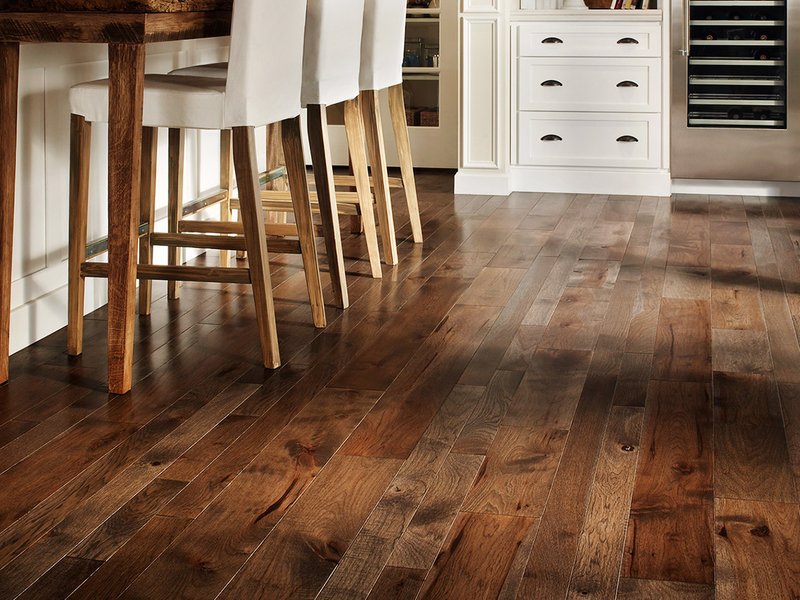
Bamboo flooring has emerged as an increasingly popular choice for homeowners and interior designers. Known for its eco-friendliness and unique aesthetics, bamboo flooring has certain characteristics that can make it an ideal fit for many, but it's not without its drawbacks. In this blog post, we'll explore both the pros and cons of bamboo flooring, and why it may (or may not) be the right choice for your home.
Pros of Bamboo Flooring
- Eco-Friendly Choice
Bamboo is a highly renewable resource, growing to maturity in just three to five years, compared to hardwood trees that can take several decades. This quick growth cycle makes bamboo an environmentally friendly flooring choice.
- Aesthetic Appeal
Bamboo flooring provides a sleek, contemporary look with its natural hues and grain patterns. Its unique appearance can add a touch of elegance and individuality to any space.
- Durability
Certain types of bamboo flooring, particularly strand-woven bamboo, are known for their hardness and durability. This can make them suitable for areas with high foot traffic.
- Easy Maintenance
Bamboo flooring is relatively easy to maintain. Regular sweeping and occasional mopping with a damp cloth are usually sufficient to keep the floor looking fresh.
- Potential Cost Savings
While bamboo flooring can vary in price, it is often a more budget-friendly alternative to traditional hardwoods without compromising on quality.
- Resistant to Moisture
Compared to some hardwoods, bamboo has a slight resistance to water and moisture, making it suitable for use in certain damp areas.
- Health Benefits
Bamboo flooring is often made with fewer chemicals and synthetic materials, which can translate to better indoor air quality.
Cons of Bamboo Flooring
- Quality Variances
The quality of bamboo flooring can vary widely depending on the manufacturer and the type of bamboo used. This may lead to issues with durability and appearance over time.
- Sensitivity to Humidity
Extreme changes in humidity can cause bamboo to contract or expand, leading to potential warping or cracking.
- Potential for Scratching
While bamboo can be durable, it may also be prone to scratching or denting, especially in lower-quality products.
- Limited Color Options
Bamboo flooring is typically available in a narrow range of natural colors. While staining is an option, it may affect the durability of the floor.
- Ethical Considerations
Not all bamboo is grown and harvested sustainably or responsibly. It's essential to research the sourcing practices of any bamboo flooring product.
- Installation Challenges
Proper installation of bamboo flooring can be more challenging than other types of flooring, requiring specialized tools and expertise.
Conclusion
Bamboo flooring offers a unique blend of aesthetic appeal, durability, and eco-friendliness that may make it an attractive option for many homeowners. However, the potential drawbacks, such as sensitivity to humidity, quality variances, and limited color options, must be carefully considered.
The key to a satisfying bamboo flooring experience lies in understanding your specific needs, preferences, and the particular characteristics of the space where the flooring will be installed.
At Jason's Carpet and Tile, we believe in providing our customers with the information and options they need to make the best flooring choices. With a wide variety of flooring solutions, including bamboo, we're here to guide you through the selection, purchase, and installation process, ensuring that you get the floor that perfectly suits your home and lifestyle.
Considering bamboo flooring or exploring other flooring options? Visit our website or contact our team at Jason's Carpet and Tile. Let us help you discover the ideal flooring solution that matches your style, budget, and functional needs. Your dream floor is just a call or click away!
